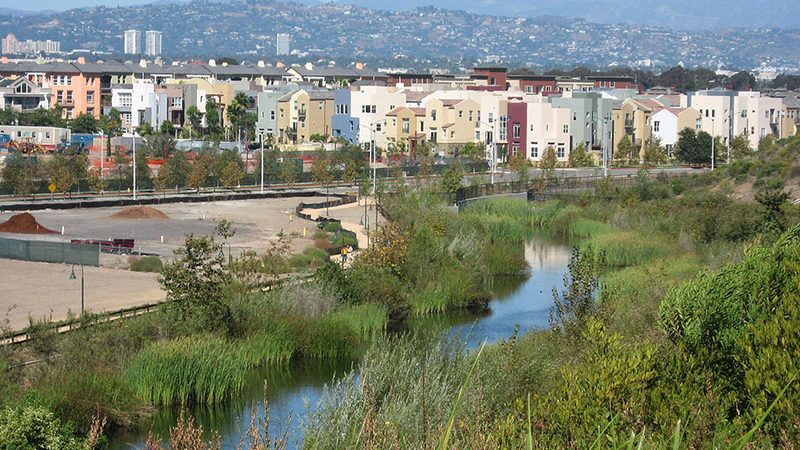Wetlands provide a myriad of ecological and economical benefits. They serve as a hotspot for biodiversity and protect our urban, commercial and agricultural areas by acting as a natural flood control space. Wetlands are crucial for taking in carbon, recharging ground water and stabilizing the shoreline. Despite their vast importance, coastal urbanization and sea level rise have threatened and destroyed many wetlands worldwide. In order to combat the effects of sea-level rise, wetlands naturally transgress, or migrate inland. Unfortunately, in a densely-urbanized area like Southern California, wetlands are often unable to transgress which leads to permanent flooding that ultimately destroys the habitat.
Our project seeks to determine the opportunities for transgression in two or three specific wetlands. Working with the Coastal Conservancy, Southern California Wetlands Recovery Project and USC Sea Grant, we will begin by looking at existing maps and identifying the transgression barriers, both man-made and natural. We will continue by looking at property value and ownership upland of the wetland itself to understand the feasibility of wetland expansion in terms of cost as well as policy. With this comprehensive approach we can create a model for considering the different variables that impede transgression, and review existing policy that facilitates wetland transgression.
Team: Michelle Don, Claudia Flores, Rachel Heinz, Gabriella Carr Merino, Rajman Randhawa, Sharon Tam
Advisor: Jennifer Taylor
Clients: Southern California Wetlands Recovery Project—California State Coastal Conservancy and USC Sea Grant

